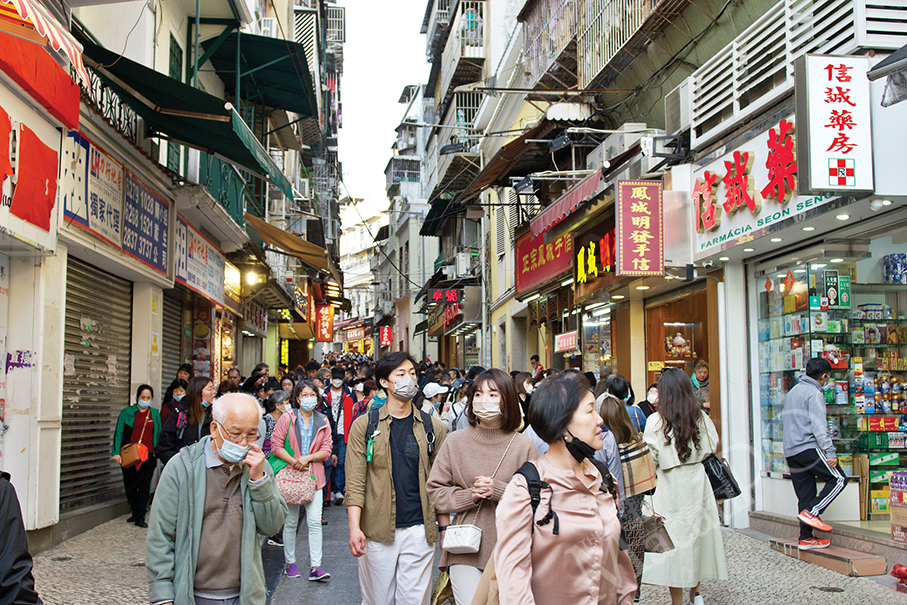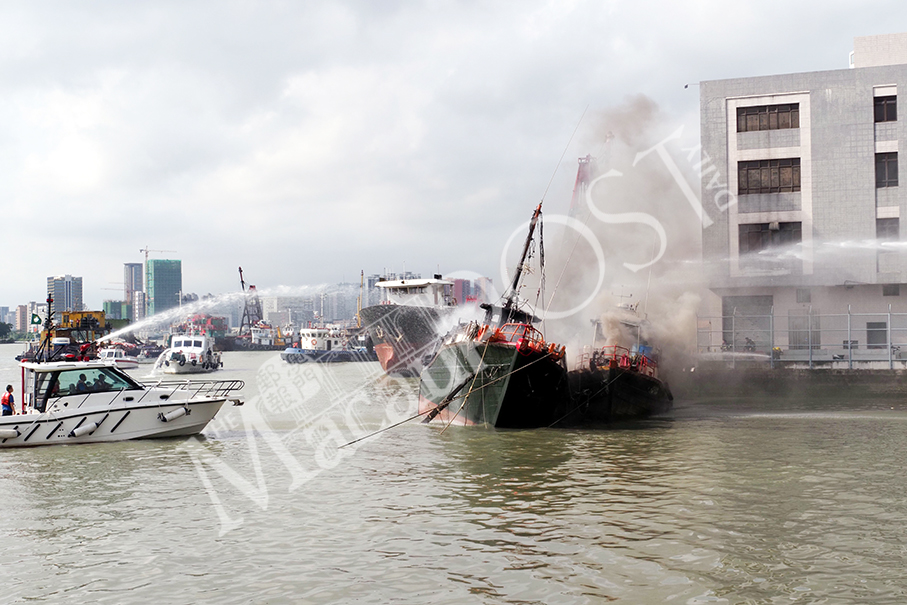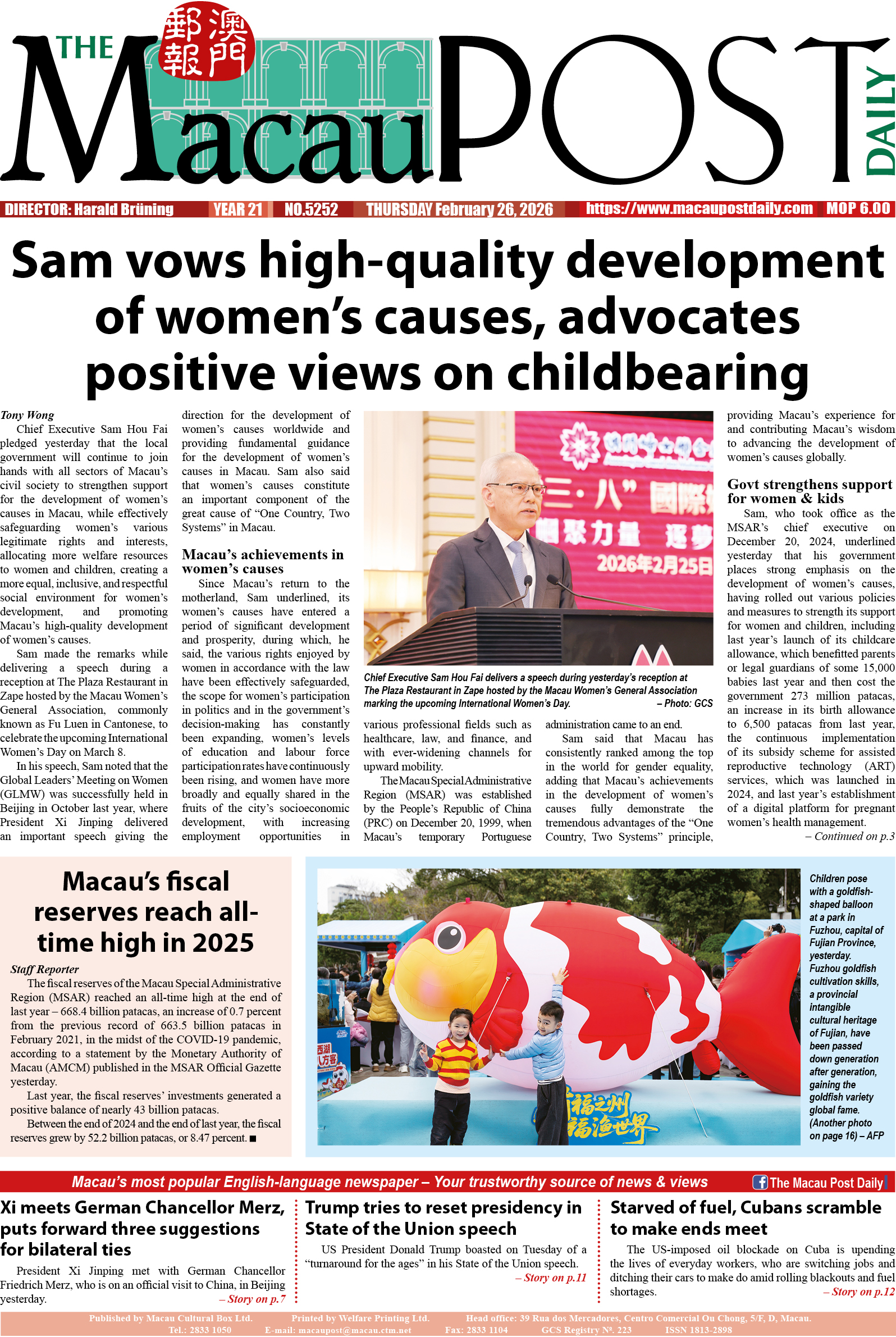The Public Administration and Civil Service Bureau (SAFP), which is tasked with overseeing the government’s public servants, has announced that public servants are no longer required to wear a facemask when working in their “internal” offices or workplaces, i.e., office spaces or areas where services are not provided to members of the public.
Concerning all other indoor venues where public servants meet service users, according to the SAFP announcement, it is up to the respective bureaus or entities to decide whether to still require the staff and service users to wear a facemask after considering various factors, such as Macau’s latest COVID-19 developments, air circulation in the venues, crowd number and density, and the nature and duration of the respective activities.
The Public Administration and Civil Service Bureau made the announcement in a set of new guidelines on Sunday. The guidelines took effect yesterday.
From yesterday, people in Macau are no longer requested to wear a facemask when they are in outdoor places.
The Macau government’s Novel Coronavirus Response and Coordination Centre announced the Health Bureau’s (SSM) easing of its facemask-wearing guidelines, which took effect yesterday, on Sunday.
From yesterday, people are no longer requested to wear a facemask in public indoor venues in general either, but those entering certain indoor venues are still required to wear a facemask, such as medical institutions, residential care homes for senior citizens, and rehabilitation care homes, except for inpatients and service users living in the care homes.
From yesterday, public bus drivers and passengers, as well as Light Rail Transit (LRT) passengers, are also still required to wear a facemask. Taxi drivers and passengers are no longer requested to wear a facemask.
Concerning all other public indoor venues and modes of transport, according to the centre’s announcement on Sunday, it is up to the respective government entities tasked with overseeing their operations to decide whether to still require those entering the venues or using the modes of transport to wear a facemask after considering various factors, such as Macau’s latest COVID-19 situation, air circulation in the venues or modes of transport, crowd number and density, and the nature and duration of the respective activities.
In general, those aged three or below are now exempted from wearing a facemask anywhere.
In compliance with the Health Bureau’s eased facemask-wearing guidelines that were announced on Sunday, the Public Administration and Civil Service Bureau announced its facemask-wearing guidelines for public servants and public administration premises later that day. The SAFP guidelines also took effect yesterday.
The Public Administration and Civil Service Bureau is tasked with overseeing Macau’s public administration, i.e., coordinating the operations and management of the Macau government’s various bureaus and other entities.
According to the SAFP guidelines, those in outdoor places are no longer requested to wear a facemask. The SAFP guidelines say that under general circumstances, public servants are no longer required to wear a facemask when working in their “internal” offices or workplaces.
Masks still required on CCAC premises
Meanwhile, all those entering the venues or facilities of the Commission Against Corruption (CCAC) are still requested to wear a facemask. Macau’s anti-graft body made the announcement in a statement on Sunday night, which said that all those entering any CCAC premises “should” continue wearing a facemask with the aim of ensuring the normal operations of CCAC services and the health of its staff.
Moreover, all those entering court premises “should” continue wearing a facemask, such as those submitting documents at the court’s offices, participating in proceedings, or attending trials at all levels of the court, according to a statement by the office of the Court of Final Appeal (TUI) on Sunday.
In contrast, from yesterday, school teachers and students are no longer required to wear a facemask in classes or when engaging in other activities, such as participating in inter-school sports and other competitions. However, teachers and students are still required to wear a facemask when catching a school bus.
The Education and Youth Development Bureau has not elaborated on its facemask-wearing guidelines for higher education institutions. In a statement on Sunday, the bureau merely said that the city’s higher education institutions should reference the Health Bureau’s adjusted guidelines on the matter.

Locals and tourists – most of them still wearing facemasks – throng Rua de S. Paulo yesterday. – Photo: Rui Pastorin








